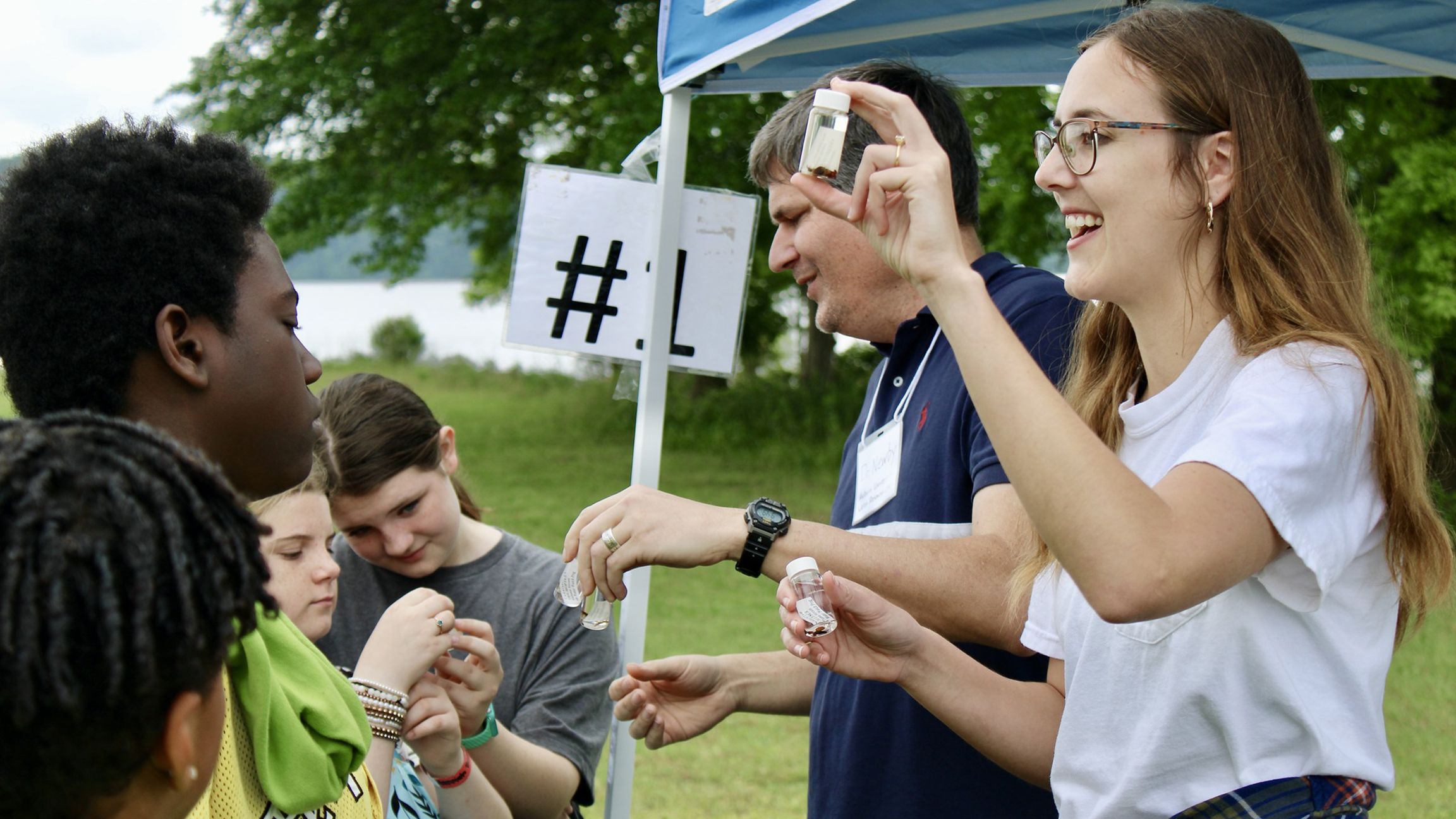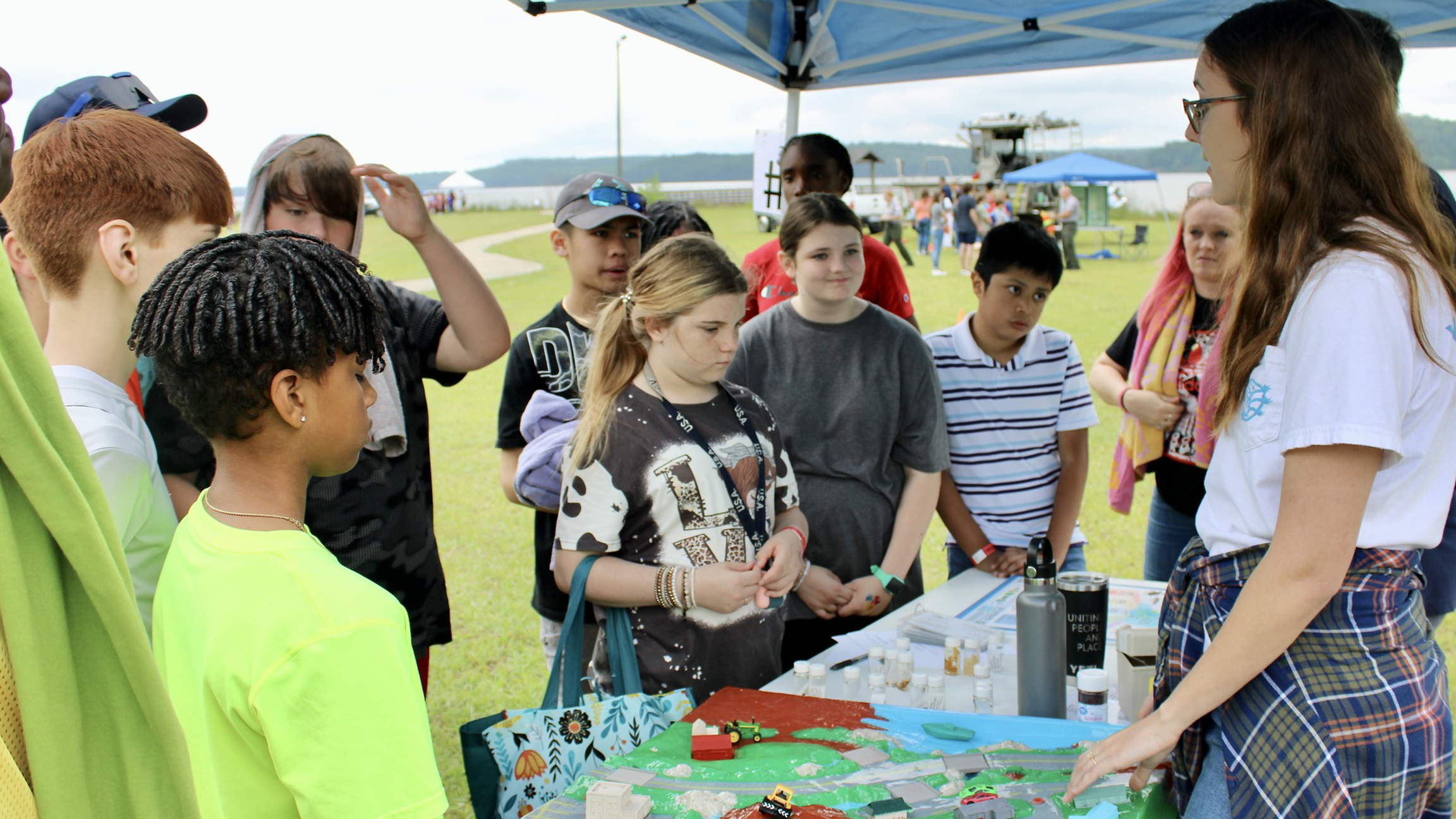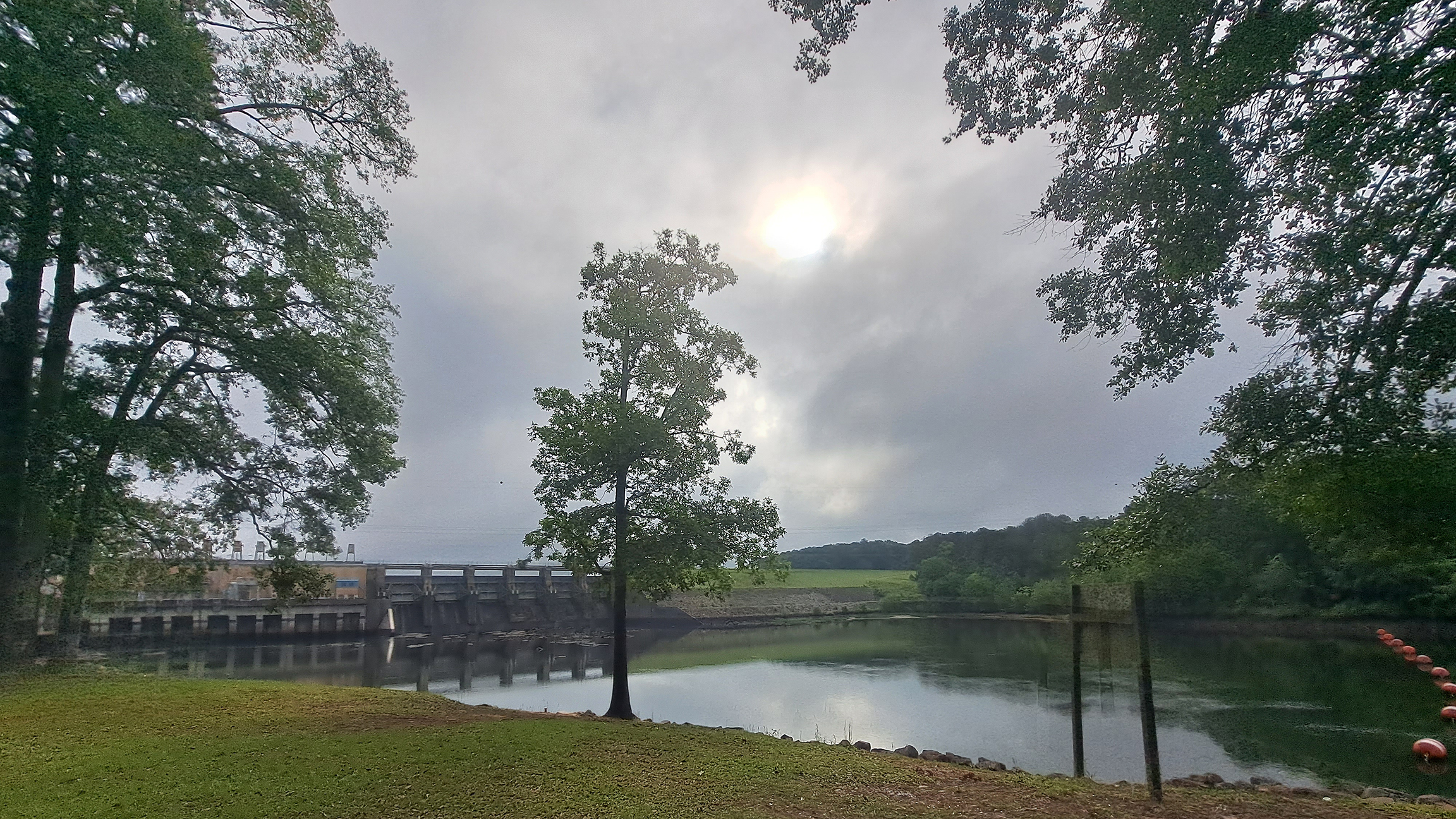
AUWRC TEACHES YOUTH ABOUT LOCAL WATER QUALITY
By: Adam Newby
Auburn University Water Resources Center (AUWRC) staff recently participated in two events aimed at educating kids about Alabama’s water resources and ecosystems.
The Barbour County Extension Office hosted the Barbour County 6th Grade Lake Day at Lake Eufaula on April 28, 2023. About 130 sixth graders from several Barbour County schools learned about Lake Eufaula, its wildlife, and the importance of protecting its water resources and ecosystems.

An aquatic macroinvertebrate display. Photo Credit: Sydney Zinner
AUWRC staff Jessie Curl and Adam Newby informed students about the importance of water quality and how they can help keep our waters clean. Using a display of aquatic macroinvertebrates, Curl and Newby explained how certain species act as indicators of good water quality. Students also learned about water safety, wildlife conservation, water conservation, and how to properly fish from other agencies including the Barbour County Extension Office, U.S. Army Corps of Engineers Park Rangers, the U.S. Coast Guard Eufaula Station, and the City of Eufaula.

AUWRC’s Jessie Curl teaches sixth graders about water pollution and it sources using an Enviroscape®. Photo Credit: Admiral Moorer Middle School
On May 17, 2023, the Chambers County Extension Office hosted its second annual Groundwater Festival at West Point Lake. Approximately 250 fourth graders from area schools learned about water safety and water conservation. AUWRC staff Sydney Zinner and Adam Newby demonstrated water pollution and the importance of water testing. They also showed students aquatic macroinvertebrate specimens that help indicate water quality. Alabama Extension staff taught students about the water cycle while U.S. Army Corps of Engineers Park Rangers and the Swift Water Resource Team of the East Alabama Fire Department taught water rescue techniques.

West Point Lake. Photo Credit: Sydney Zinner
The Alabama Department of Environmental Management demonstrated how several pollutants affect water quality. A conservationist from the USDA National Resources Conservation Service District used a rainfall erosion simulator to demonstrate sediment run-off pollution. Finally, a fish biologist with the Alabama Department of Conservation and Natural Resources taught students about fish species that can be found in West Point Lake.
The mission of the Auburn University Water Resources Center is to facilitate interdisciplinary collaboration among Auburn University faculty and staff on water-related research, outreach, and instruction; conduct innovative research to find practical solutions for current and future water issues and empower private citizens to become active stewards of water resources.
